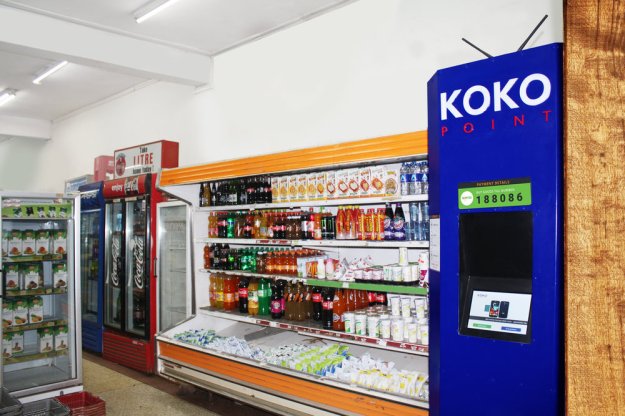Daniel Kerr from UCL writes on innovative pay-as-you-go models in use for cooking energy service provision.
In the last 2-3 years, a handful of thermal energy services companies in the developing world, specifically in Sub-Saharan African countries, have begun to take advantage of pay-as-you-go (PAYG) consumer financing models in their energy businesses. These models have significant advantages in comparison to direct purchase, hire-purchase or micro-credit models when dealing with the poorest consumers in societies, for example those living in informal settlements in urban or rural areas. Some companies are taking advantage of these models for selling clean cooking products, such as stoves themselves, whereas others are using this payment structure for cooking fuels.
One company in Kenya taking advantage of these innovations is KOKO Networks. This organisation seeks to offer an integrated neighbourhood-level clean cooking solution with smart technology, via their KOKO points, cloud-connected commerce hubs where consumers and vendors can come to refill the products on sale or make purchases. Currently the company is offering the SmartCook product at these sales points, which is a two-burner clean cookstove with an integrated fuel canister. The fuel used is marketed as Mafuta smart, which is an ethanol fuel derived from molasses manufacture.
What is particularly innovative about this system is that the sales hubs for the company have in the automated purchasing stations for the fuel for the cookstove system. These dispensers refill the provided fuel canister (known as a kibuya smart canister) with the cookstove system, and customers can refill their canister from as little as KHS30 (US$0.29) at a time, offering significant flexibility for the consumer, without the “poor people’s premium” (higher per-unit prices charged for small amounts of consumable products) seen in other commodities. The company operates on a concession business model, with interested parties either setting up their own fuel supply arrangements for the fuel to service their settlement, or purchasing equipment and fuels from KOKO themselves.
Other companies in Kenya are taking advantage of PAYG models to enable greater access to their products and services as well. In Nairobi, PayGo Energy is a distribution service for LPG fuels that is using pay-as-you-go services to bring LPG fuel access to a greater number of consumers. The service begins with the installation of an LPG stove, cylinder and smart fuel meter in the home. This smart meter is at the core of the service the company offers, as it automatically communicates to the company when the fuel level is running low, whereupon the company arranges delivery of a replacement, full cylinder to the household. In addition, the system support mobile payments and ordering of fuel replacements, allowing customers to purchase as little as a day’s worth of LPG (around US$0.50) at a time. This logistics system has been adapted to informal settlements, allowing uninterrupted supply to households in informal settlements via motorcycle.
Other organisations are beginning to see the benefits of integrating mobile payment technology with a pay-as-you-go fuel payments model for energy services. KopaGas in Tanzania are another company using smart LPG metering to minimize the challenges posed by last-mile distribution which are typical in providing thermal energy services to communities. This smart gas meter system allows the company to deliver cylinder filling services or replacement full cylinders to communities efficiently, minimising distribution costs. In addition, the company offers a pay-as-you-go service for LPG fuel, as well as offering pay-over-time services for both fuels and cooking equipment. KopaGas has been partnering with EnviroFit, an established LPG equipment and fuel distributor in East and West Africa, in order to scale their service reach.
Through these cases, the market opportunity for offering clean cooking fuels and technologies as an energy service, using innovative fuel and equipment payment models to enable access for the widest range of consumers, can be clearly demonstrated. KOKO Services and KopaGas/PayGo Energy may be using different technology options, but the commonalities in approach exist: offering consumers the ability to purchase small amounts of fuel at a time, via a convenient payment method (either via mobile, at a central filling station, or both), and in the case of the LPG companies, offering consumers the option of household delivery. Through this combination of factors, these companies are breaking the traditional barriers to household thermal energy service delivery, allowing consumers who previously would not have had the financial capacity to afford modern cooking fuels the ability to access these technologies.
– Daniel Kerr, UCL Energy Institute
References
Global Alliance of Clean Cookstoves (2017) “Pay-as-you-go” technology to boost access to cooking fuel. Available at: http://cleancookstoves.org/about/news/05-30-2017–pay-as-you-go-technology-to-boost-access-to-cooking-fuel.html
KOKO Networks Home: http://kokonetworks.com/
PayGo Energy Home: https://www.paygoenergy.org/
KopaGas Home: https://www.kopagas.com/


